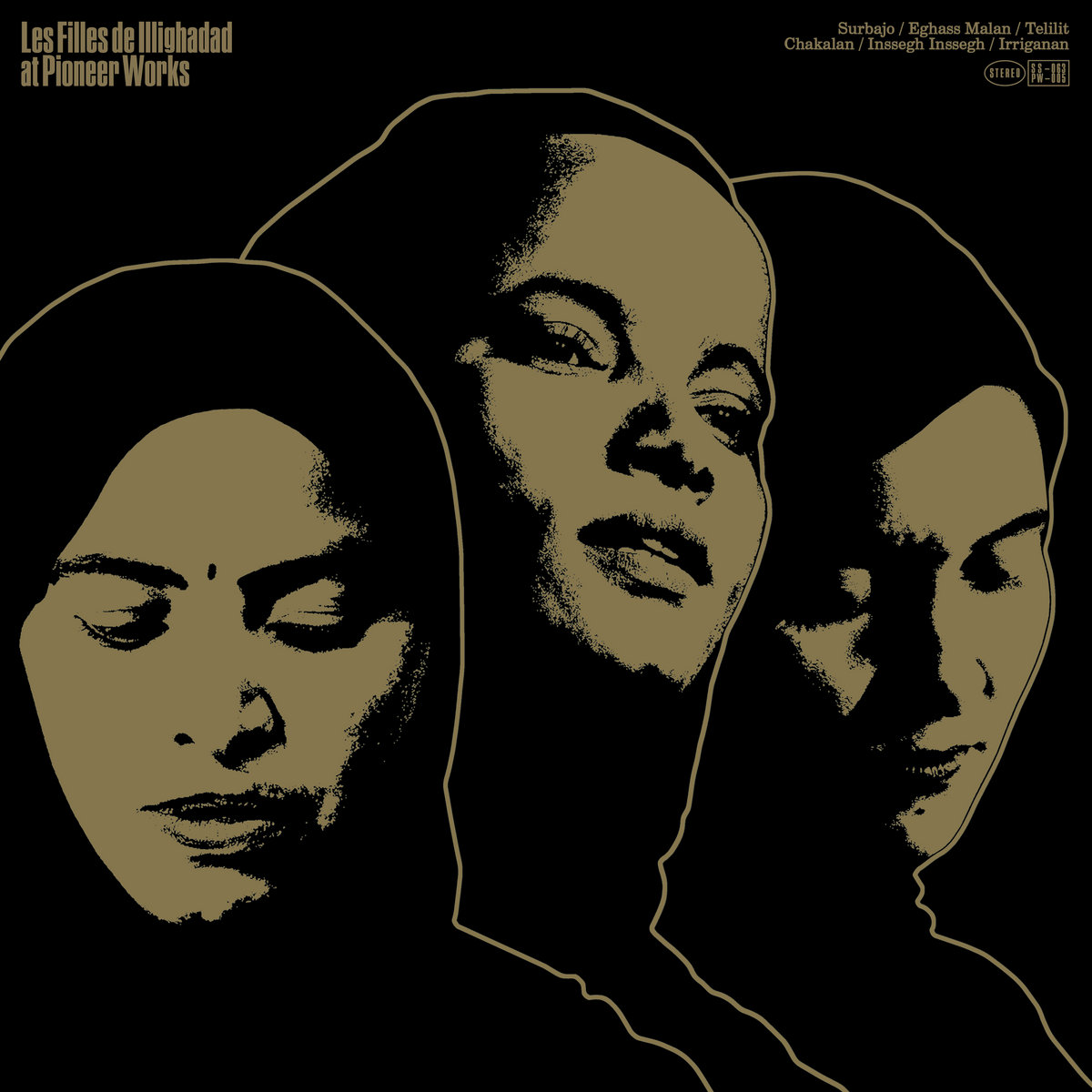Sahel Sounds bringen Anfang Juli ein neues Album der aus dem Norden Nigerias stammenden All Female-Band Les Filles de Illighadad heraus. Es handelt sich um eine Zusammenstellung von Live-Aufnahmen aus dem Pioneer Works-Art Space in Brooklin. Zwei Gitarren, zwei Schlagwerke und drei Mikros für den Gesang erzeugen auf “At Pioneer Works” eine innovative Mixtur verschiedener Spiel- und Gesangsweisen aus dem großen Kosmos einer Musik, die mit Begriffen wie Tuareg allenfalls in Ansätzen beschrieben wäre. Die acht Tracks decken auch inhaltlich eine große Bandbreite ab von Liebesliedern über festliche Gesänge und Musik für Heilungsrituale. “At Pioneer Works” erscheint als LP und CD bei Sahel Sounds in Zusammenarbeit mit Pioneer Works Press.
“Les Filles de Illighadad comes from the village of Illighadad in a remote region of central Niger. Like many of the villages in the area, its borders are loosely defined, owing to the largely pastoral population. It rests on the shore of a seasonal pond that swells during the rainy season. The center of town has a well, some small houses, and a school. But most of Illighadad’s people live in the surrounding scrubland desert, in tiny patched roof houses or temporary nomadic tents, hidden among the trees. Les Filles de Illighadad (“daughters of Illighadad”) was founded in 2016 by solo guitarist Fatou Seidi Ghali and renowned vocalist Alamnou Akrouni. In 2017 they were joined by Amaria Hamadalher, a force on the Agadez guitar scene, and Abdoulaye Madassane, rhythm guitarist and a son of Illighadad. Les Filles’ music draws from two distinct styles of regional sound, ancient village choral chants and desert guitar. The result is a groundbreaking new direction for Tuareg folk music and a sound that resonates far outside of their village.
To emerge from this small village to perform on stages around the world is no small feat, and is a testament to the band’s unique sound. But their home is more than their narrative. Illighadad is central to everything about the band, from their repertoire, the way they perform, the poetry they recite, even the way they sing. Music has always traveled in the Sahel, from poetry recited by nomads, scratchy AM radio broadcasts, to cell phone recordings sent over WhatsApp. Yet even today each village has its own style. When Les Filles perform, they play the music of Illighadad. At the heart of Les Filles’ music is the percussion and poetry of tende—a term used for both the instrument and the type of music— whereby a mortar and pestle are transformed into a drum, and women join together in a circle, in a chorus of singing, chanting, and clapping. Sometimes it’s music for celebration, sometimes it’s music to heal the sick, sometimes it’s poetry of love. But it’s always music of people, where the line between performer and spectator breaks down. To be a witness is to be a participant, to listen is to join in the collective song.
It’s precisely this collectivism that makes the recording “At Pioneer Works” seem so natural and timeless. Recorded in the Fall of 2019, “At Pioneer Works” finds the band at the height of their touring career. Over two sold-out shows, the band brought Illighadad to New York, their first performance in the city. Speaking of the night, The New Yorker’s music critic Amanda Petrusich writes: “The crowd in Brooklyn was entranced, nearly reverent. Les Filles’ music is mesmeric, almost prayer-like, which can leave an audience agog… whatever rhythm does to a human body—it was happening.”There’s something bittersweet that it’s the sound of Illighadad that has propelled Les Filles’ to travel so far and so often. Playing on a stage 5000 miles from home, their performance evokes the village with a heavy ever-present nostalgia. In singing the songs of Illighadad, Les Filles’ invite the audience to share in the remembrance, to hear the poetry and driving tende, to stumble out into a night lit by a faint moon, joining in chants that carry over the nomad camps, in a call to come together and sing under the stars.” (Christopher Kirkley)
